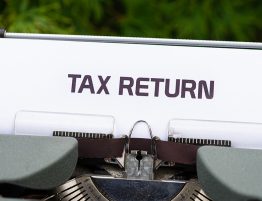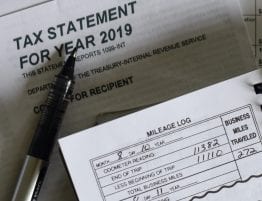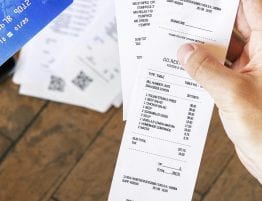
Several new tax rules under the 2017 Tax Cuts and Jobs Act left many taxpayers confused about their tax withholdings. The standard deduction was doubled, existing tax credits were changed, and many deductions were eliminated. The changes impacted millions of Americans, many of whom could not get their withholding correct and” ended up withholding much less from their paychecks, which lead them to owe to the IRS.
Usually, a taxpayer’s tax withholding changes only if there is a change in the taxpayer’s personal or financial situation due to marriage, a new child, promotion, etc. But this year, even if there is no change in a taxpayer’s situation, their withholding could be different.
Stumped by the tax changes, many underpaid the IRS. But thankfully, the government has reduced penalties for failure to pay on time. But the same relief might not be available for the 2019 tax return. Accounting Today elaborates:
“In January, Treasury announced it would remove penalties for taxpayers who’d paid at least 85 percent of their payments during 2018. Changes to tax brackets, withholding tables and the child tax credit associated with the new law left some taxpayers asking for too little to be withheld, leaving them with surprise tax bills when they file their returns.
Taxpayers ‘Shocked’
The change follows requests from National Taxpayer Advocate Nina Olson of the IRS and two Democrats, Representative Judy Chu of California and Senator Kirsten Gillibrand of New York, who pushed for legislation after hearing that confused taxpayers were getting hit with steep penalties for under-withholding.
Many taxpayers this year are ‘shocked to discover they owe hundreds or thousands of dollars to the IRS through no fault of their own, and could even face penalties,’ Chu said in a statement. ‘As the tax-filing season is in full swing, Treasury’s action will relieve the financial anxiety facing worried taxpayers across the country.’
Treasury Secretary Steven Mnuchin said in a statement on Friday that he was aware of bipartisan interest on the issue, and agreed that ‘further relief should be provided.’
Taxpayers can also avoid underpayment penalties if they owe less than $1,000 or they paid 100 percent of the amount they owed in the prior year.
The Treasury official, who spoke on condition of anonymity, said he expects the change will eliminate fines for 25 percent to 30 percent of taxpayers who would have owed if the threshold had been left at 90 percent. About 10 million to 12 million taxpayers paid underpayment penalties totaling about $1.6 billion in 2018. It’s not yet clear whether more people will owe penalties this year, the official said.
Treasury will soon release a form for taxpayers who paid at least 80 percent to attach to their tax return that will exempt them from penalties. Those who’ve already filed their taxes and paid the penalties can request a refund from the IRS for the amount of the fines.”
Fill out the form for a free and confidential consultation.








